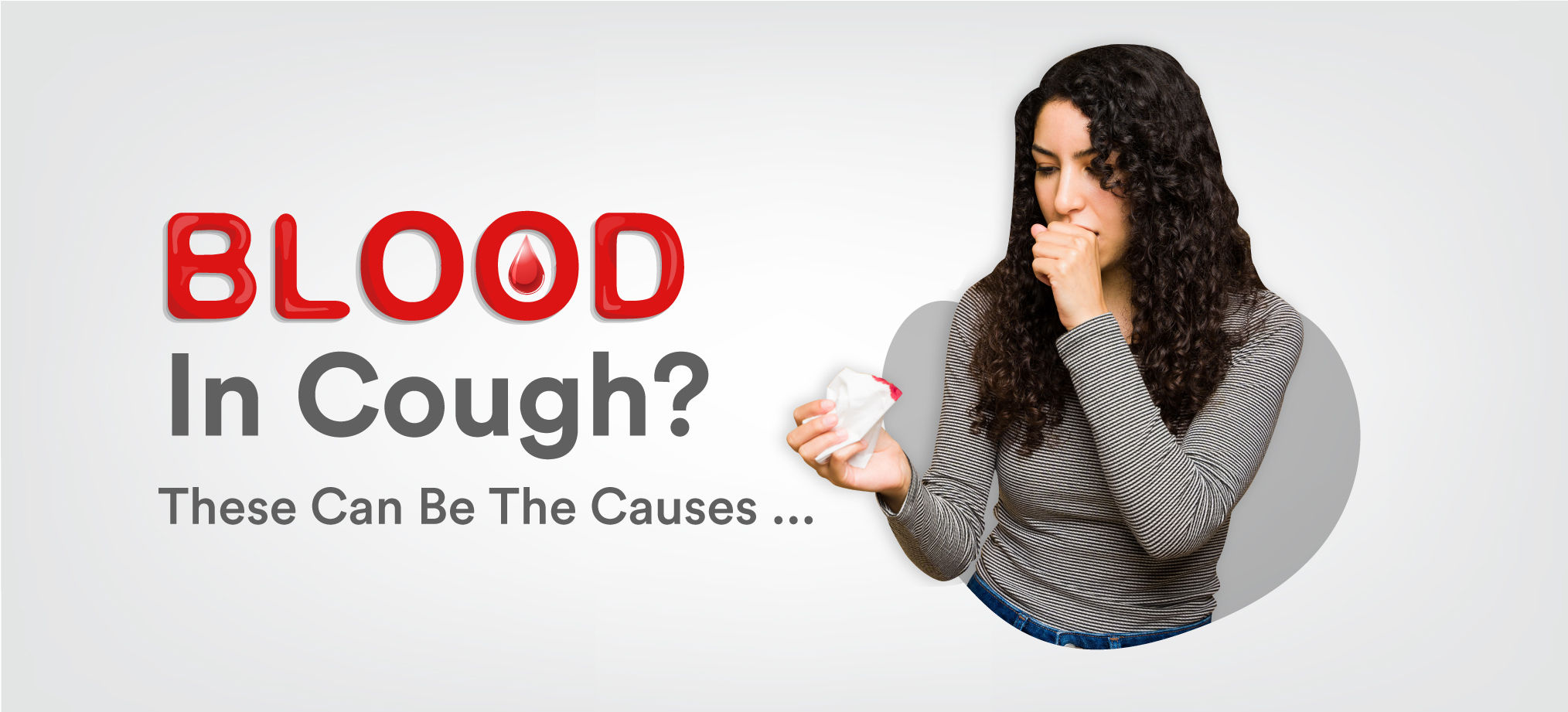General Health
Coughing Up Blood? You Might Be Having These Health Issues
3 min read
By Apollo 24|7, Published on - 30 March 2023, Updated on - 21 June 2023
Share this article
0
0 like

Coughing up blood can be an alarming and worrying symptom for anyone who experiences it. Medically called hemoptysis, blood in cough can indicate a serious underlying medical condition and should never be ignored or dismissed lightly. In this article, we would discuss the causes of hemoptysis, and when you should seek medical attention.
What is Hemoptysis?
Hemoptysis can be classified into different types based on the amount of blood expelled within 24 hours. However, identifying the type can pose a challenge in some cases. Therefore, it's essential to seek medical attention immediately, regardless of the amount of blood coughed up, as hemoptysis could signal a serious underlying medical condition.
1. Mild or scant hemoptysis
This is the least severe type and is medically called mild or scant hemoptysis, where a person may cough up less than a tablespoon, i.e., 20 ml of blood.
2. Non-massive or non-life-threatening hemoptysis
The second type is also non-life threatening but may involve expelling between 20 ml and 200 ml of blood, roughly a cup's worth.
3. Massive or Life-threatening hemoptysis
The most severe category is known as massive hemoptysis or life-threatening hemoptysis, which is defined differently by various experts. This type can involve coughing up between 100 ml and 600 ml of blood, equivalent to approximately a pint.
Your doctor would conduct a thorough examination and order additional tests to determine the cause of hemoptysis and provide appropriate treatment.
Causes of Hemoptysis
There are many possible causes of hemoptysis, ranging from minor to serious medical conditions. Coughing up blood can occur due to irritation of the airways from a respiratory ailment or a strong cough. The most frequent reasons for coughing up blood are:
- Tuberculosis
- Chronic obstructive pulmonary disease (COPD)
- Asthma
- Mild respiratory infections
Other severe factors that may cause you to cough up blood are:
- Bronchitis (inflammation of airways)
- Pneumonia
- Bronchiectasis (widening of airways)
- Lung cancer
In rare cases, coughing up blood can indicate serious conditions that require immediate medical attention, such as
- Cystic fibrosis (thick mucus buildup on the organs)
- Severe heart failure
- Blood clots in the lung
- Injury to the lung arteries
- Abnormal tissue deposits
When to Seek Medical Attention?
If you experience hemoptysis, then it is important to get medical support as soon as possible. While some cases may be due to minor conditions, others may indicate more serious underlying medical issues. Some signs that may indicate a need for immediate medical attention include:
- Coughing up large amounts of blood
- Shortness of breath
- Chest pain
- Dizziness or lightheadedness
Diagnosis and Treatment
If you experience hemoptysis, the healthcare provider would perform a physical examination and order diagnostic tests such as a chest X-ray, CT scan, bronchoscopy, complete blood count (CBC), and sputum culture to determine the underlying condition.
The approach to treating hemoptysis will vary based on the root cause. For instance, in a minor case, treatment may involve rest and medication to relieve symptoms. However, more serious cases may require hospitalisation.
If you are coughing up blood, seek medical attention as soon as possible. Your physician can assist in identifying the root cause and administering suitable treatment.
Consult Apollo's Expert Haematologists
Medically reviewed by Dr Sonia Bhatt.
General Health
Leave Comment
Recommended for you

General Health
Green Tea VS Black Tea: Is It That Difficult To Pick The Side?
While green tea lowers cholesterol levels, black tea has anti-inflammatory properties. Read to know more about the benefits of both the tea.
.jpg?tr=q-80)
General Health
Vitamin D Vegetables: How To Include Vitamin D-Rich Vegetables In Your Diet
Discover the best vitamin D-rich vegetables and easy ways to include them in your meals. Boost your vitamin D intake naturally for better health!

General Health
Adult Vaccines: A Comprehensive Guide to Benefits, Recommendations, and Safety
Explore different types of adult vaccinations in this comprehensive guide, covering history, types, and contributions to global health. Learn about common misconceptions, recommended vaccines, and strategies to ensure safety and efficacy. Discover how to overcome barriers like access and affordability. Empower yourself with knowledge for a healthier future.
Subscribe
Sign up for our free Health Library Daily Newsletter
Get doctor-approved health tips, news, and more.
Visual Stories

Science-backed Home Remedies for Burns and Blisters
Tap to continue exploring
Recommended for you

General Health
Green Tea VS Black Tea: Is It That Difficult To Pick The Side?
While green tea lowers cholesterol levels, black tea has anti-inflammatory properties. Read to know more about the benefits of both the tea.
.jpg?tr=q-80)
General Health
Vitamin D Vegetables: How To Include Vitamin D-Rich Vegetables In Your Diet
Discover the best vitamin D-rich vegetables and easy ways to include them in your meals. Boost your vitamin D intake naturally for better health!

General Health
Adult Vaccines: A Comprehensive Guide to Benefits, Recommendations, and Safety
Explore different types of adult vaccinations in this comprehensive guide, covering history, types, and contributions to global health. Learn about common misconceptions, recommended vaccines, and strategies to ensure safety and efficacy. Discover how to overcome barriers like access and affordability. Empower yourself with knowledge for a healthier future.
